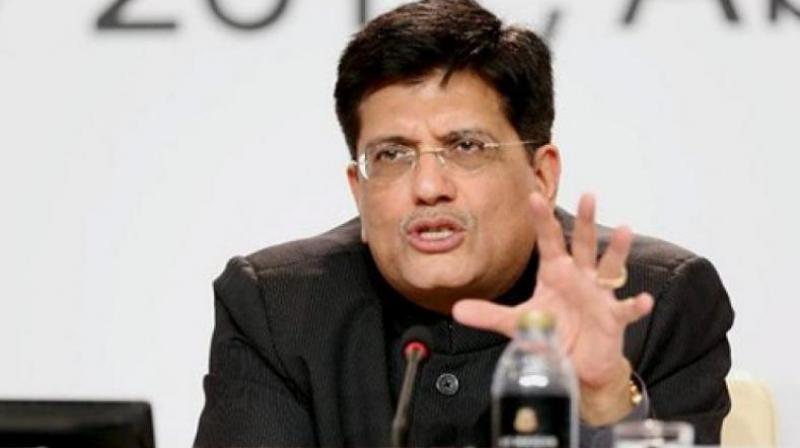Govt hints not all Swiss bank cash is black'

New Delhi: On the backfoot after reports emerged that money parked by Indians in Swiss banks had risen by over 50 per cent, the government indicated on Friday that all the funds that were deposited in Switzerland need not be black money.
Finance minister Piyush Goyal said as per the agreement with Switzerland, all data from January 1, 2018 onwards would be available with the government. “In due course it has to come to us,” Mr Goyal said. “So how do you assume that all this is black money or it is illegal transactions? I still can’t understand this,” he added.
Congress president Rahul Gandhi mocked the Narendra Modi government over what he described as its change in stand over the money deposited in Swiss banks. Mr Gandhi said that in the 2014 election campaign, Prime Minister Narendra Modi had promised he would bring back all the “black” money in Swiss banks and that he would put 15 lakhs in every Indian’s bank account. Mr Gandhi also pointed out that in 2016 Mr Modi had said that demonetisation will cure India of “black” money.
“(In) 2018, HE says: 50 per cent jump in Swiss Bank deposits by Indians is ‘white’ money. No ‘black’ in Swiss Banks,” Mr Gandhi tweeted.
Union minister Arun Jaitley, in a social media post, said that recently Switzerland had changed its laws on the disclosure of bank deposits and that it was no longer an ideal destination for tax evaders. “To assume that all the deposits are per se tax evaded money or that Switzerland in the matter of illegal deposits is what it was decades ago... is to start on a shaky presumption,” he wrote.
He said Switzerland had taken significant efforts to get out of the image of being a tax haven and non-compliant state. “It is on the verge of making disclosures in real time and, therefore, is no longer an ideal destination for tax evaders,” said Mr Jaitley. “Those who participate in a public discourse must understand these basic facts before expressing an opinion which may be ill-informed,” he said.
Mr Jaitley said Switzerland had entered into a treaty even with India and a real-time flow of information with regard to Indians would follow. “The flow of information is starting in January 2019. Any illegal depositor knows it is a matter of months before his name becomes public and he will be subjected to the harsh penal provisions of the black money law in India,” said Mr Jaitley.
Meanwhile, BJP MP Subramanian Swamy also attacked the government over the surge in deposits by Indians in Swiss banks. “MoF can claim that due to their brilliance India has achieved a world record growth of 50 per cent annually against global growth of 3 per cent. The US is so jealous that they cancelled Sushma and Nirmala visits to US,” tweeted Dr Swamy.
Explaining further, Mr Jaitley noted that Indian money outside the country was of various categories. “Past investigations by the CBDT have shown this includes many held by persons of Indian origin who now hold foreign passports, monies belonging to non-resident Indians, as also monies belonging to resident Indians who have made legitimate investments abroad, including transfer of money under the liberalised remittance schemes. It is only monies kept by resident Indians outside these categories which become actionable,” said Mr Jaitley. He said the first two categories are within the jurisdiction of those countries where these persons are residents, and the third category can easily be checked up in India. “If the deposit does not fall in any of these categories, it is per se illegal, for which investigations are undertaken, arrests made and criminal prosecutions are launched,” he said.
As per reports, the money parked by Indians in Swiss banks rose over 50 per cent to 1.01 billion Swiss francs ('7,000 crores) in 2017, reversing a three-year downward trend amid India’s clampdown on suspected black money stashed there.
Citing media reports, Mr Goyal said 40 per cent of the money was because of the liberalised remittance scheme, which was introduced by former finance minister P. Chidambaram. As per the liberalised LRS, an individual could remit up to $250,000 per year, he added.
“We will have all information if someone is found guilty, (and) the government will take strong action against them,” Mr Goyal said. In July last year, Prime Minister Narendra Modi had referred to a record 45 per cent drop in deposits by Indians in Swiss banks.

